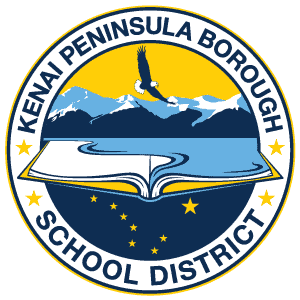February 2003 / Plagiarism

Ask the Superintendent: Plagiarism Superintendent's Column Peninsula Clarion D. Peterson February 2003 |
|
Many parents may not be aware of the seriousness of the improper use of technology and its impact on student assignments. School administrators must err on the side of education; thus the need for this article "educating" parents regarding the increasing problem of plagiarism. Unfortunately for many students, gone are the days of making note cards with summary statements and organizing ideas into a hand written outline. Across the country, high school and college programs have considerably changed their expectations and requirements for papers, dissertations, and thesis documents because of the information available via technology. The tried and true pre-writing skills should NOT be lost; but rather they should be "tweaked" to acknowledge the realities of today’s technology. What we're seeing in schools however, is students downloading pages of text from multiple internet sources, then cutting and pasting to combine the information into their own paper. Schools must educate students about internet plagiarism to assure that with the ease of integrating ideas and information found on the internet, students still must follow the rules of “not copying from a book.” It is very important that students not learn bad habits with regard to technology. Good skills begin with keyboarding and extend to using the internet as a reference source for written assignments. Most students don't realize that by utilizing a good search engine teachers can easily find evidence and prove that a paper is plagiarized. Some students do not think plagiarism is a big deal, but it is. Students who plagiarize can fail courses and in some cases be suspended from school. Individuals have even lost their jobs because of plagiarism. Schools have an obligation to communicate that plagiarism is a form of cheating; all students are expected to adhere to the highest standards of personal honesty in their work, and that work presented for credit in classes must be original. So, how can parents help? Most schools have policies on cheating. Check with your child’s school to review written policies and unwritten expectations for student work. Language arts classes directly teach "citation" skills on properly referencing sources used in papers. Many teachers, even in elementary school, directly teach students how to prepare an assignment that uses outside sources. Skills of note taking, summarizing, outlining, paragraph development, and theme development are interwoven throughout all coursework. These skills are no different than when we went to school; the only difference is the abundance and easy access to the information. Reference sources still need to be verified for accuracy and cited appropriately when included in the construction of a research paper. Parents should be familiar with their own child's writing ability and style. Parents should read their child’s paper before it is submitted for review by the teacher. It is also helpful to check for understanding; see if the student can describe the event or idea in his/her own words. Finally, check to see if the sources are cited correctly. If something sounds copied, it could be. As with many things in life, there are both positive and negative aspects of using the internet for research. Few of us would opt for the old way of doing research. Information availability is vastly changing our world, often for the better. However, it is up to all of us – educators and parents – to make sure that all students learn to use technology appropriately and responsibly. |
